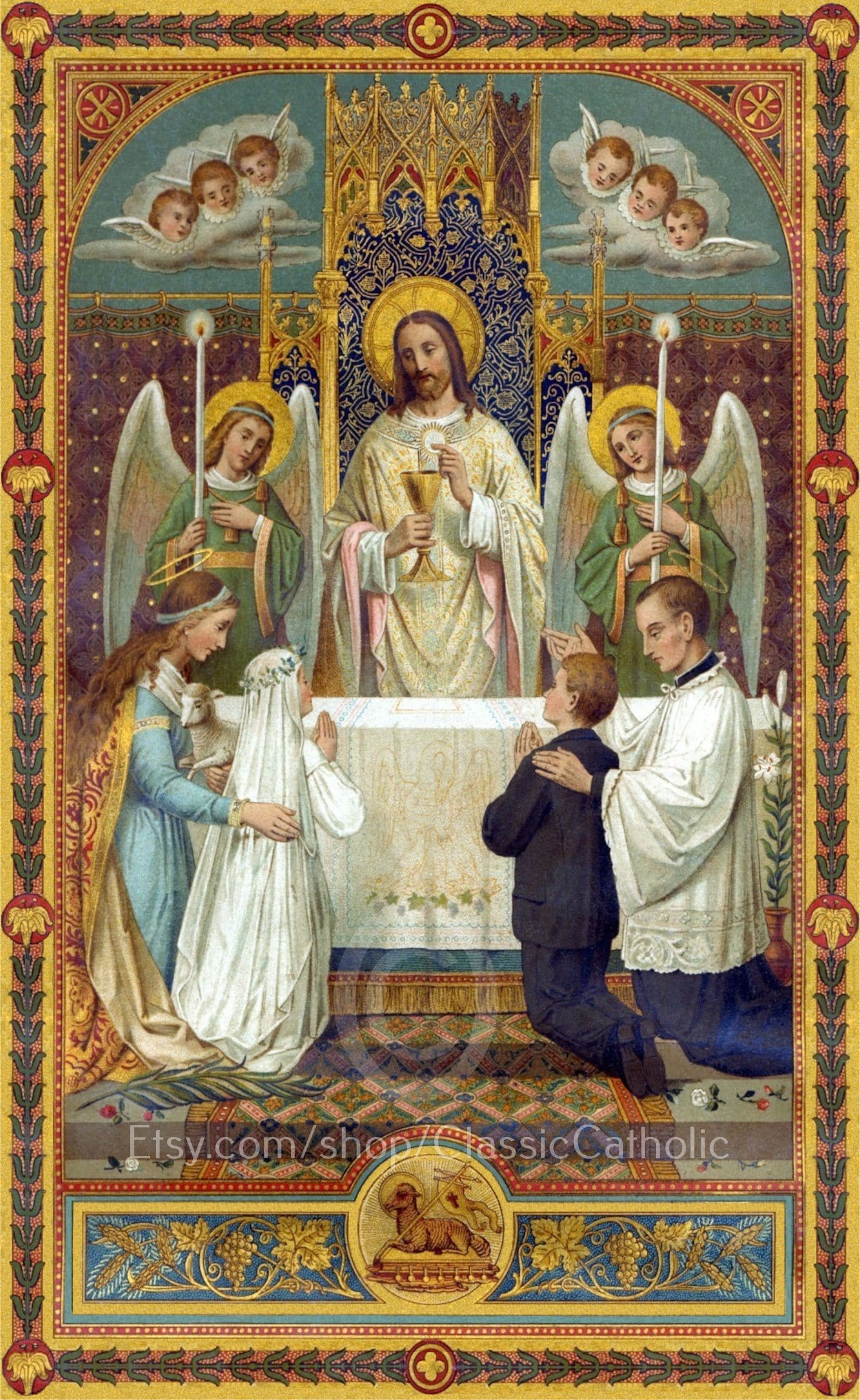The Blessed Sacrament Of The Altar: The Third Cause To Desire The Soul
A Treatise of The third cause to desire the soul.
THE Philosophers and Physicians with joint assent approve this principle to be of an undoubted verity. Ex quibus constamus ex ijfdem nutrimur, with those things we are nourished of which we are made. For being compounded of flesh, bones, heart, liver, brains, sinews, we cannot live except we be fed with flesh, bones, heart, livers, sinews, to nourish our bones, heart, liver, &c. which posirion must not be so grossly conceived, that we ought to eat bones, or livers. to nourish our bones, or hearts, for many eat nothing but roots, herbs, fruits, bread, fishes, never touching flesh, or bones, and yet are nourished. But that whatsoever we receive for sustenance, cannot restore the parts which by continual reſolution Vanish away, except the incate we take be first converted into the ſubſtance of thoſe parts which are to be repaired.
Therefore that bread we eat doth not nouriſh the heart before it be converted into the ſubſtance of the heart, it feedeth not the bones till it be changed into the ſubſtance of bones, it restoreth nor the brains, the bleſſed Sacrament. 14 braipes, till it become of the nature of brains. The Just therefore in scripture being called gods. Ego dixivos dy estis o for mosta Pal.Brand by excelſi omnes. I faide you are gods, and all the sons of the higheſt: and participating in their souls a divine nature, Di. wine nature falli confortes, Being made per- 2.Pol. takers of the divine nature (if the Philosophers propoſitions be proved true) ought to haue a diuine foode, the which no doubt the wisdom, goodness, and power of God knew, would and could prouid for them,as we ſee afforded in this Sacrament. This ſeemed Chriſt to inſinuate when he faide, Qui manducat meums carnem, & bibit meum fanguinem, in me ma- net & ego in eo . He that eacech my Acſh, and drinketh my blood, abideth in me, & I in him.
By which words are propounded two admirable unions, the one is,that God is in vs, the other, that we are in God, by eating this celeſtiall food. That God hereby dwelleth in us c cannot be called in queſtion, because as mear en- treth into us, remaineth in us, and is united with us, even so Christ entereth real. ly, remainech really, and is reſident ſo long as the vailes of bread and wine are not A Treatise of Job be not consumed. But O Lord how can we be in thee, since that no man is in the mcat he eateth, but rather the meat is in him how then is it true, he that eat thee remainech in thee ? yet infallible truth it is that thoſe that eat Christ are in Christ.
For this difference we find between this divine food and other corruptible meats, that they have not life in themselves, nor give life, but receive life of the body, and of insensible and inani- mate creatures become ſenſible and ani. mateſubſtances, but Chriſts body so feeds the soul that it giveth life unto it : Qui manducar me, vinet propter me. He that eat- ethr ime, the ſame also ſhall live by me. And therefore as God is said to be in the Just by grace & charity,and they in him, ſo by this Sacrament Chriſt is in vs, and we in him. Here upon it followeth, that men are deified in two fortes, by receiving this Sacrament, firſt by a real communication with Christ,whom they harbor in their bodies, and therefore of S. Cyprian are called Baiuli Chriſti carriers or bearers of Chriſt, and others term the Christoferi: secondly they are deified in soul by recoving this grace, which is De cana Bom. a di. the bleſſed Sacrament. 15 adiuine coniunction and admirable participation of his deitic, by which they are made divine nature conforts partakers of the divine nature.





Comments
Post a Comment